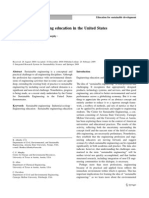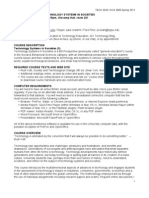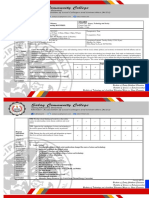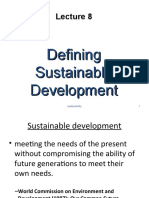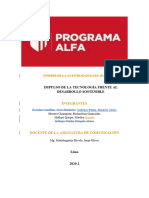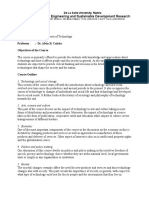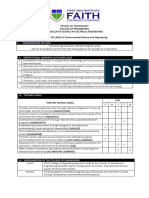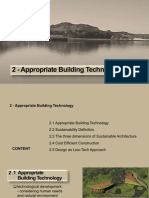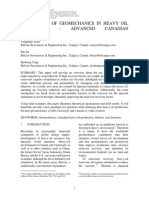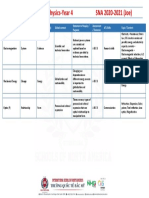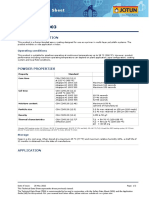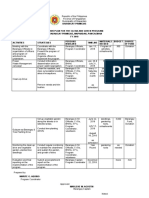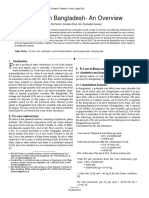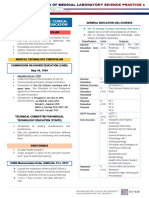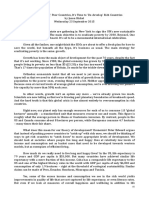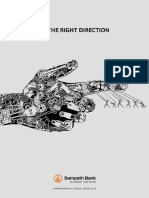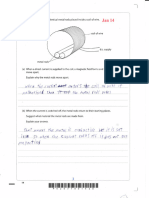0% found this document useful (0 votes)
6 views24 pagesASU Tech Systems Syllabus
CEE 181 is an online course focused on the intersection of technology, society, and sustainability, exploring the implications of technological systems in the Anthropocene era. The course covers various topics including complexity, industrial ecology, and the ethical dimensions of emerging technologies, with an emphasis on critical thinking and problem-solving skills. Students will engage in discussions, quizzes, and exams, with a total time commitment of approximately 135 hours over the semester.
Uploaded by
Bob McLainCopyright
© © All Rights Reserved
We take content rights seriously. If you suspect this is your content, claim it here.
Available Formats
Download as PDF, TXT or read online on Scribd
0% found this document useful (0 votes)
6 views24 pagesASU Tech Systems Syllabus
CEE 181 is an online course focused on the intersection of technology, society, and sustainability, exploring the implications of technological systems in the Anthropocene era. The course covers various topics including complexity, industrial ecology, and the ethical dimensions of emerging technologies, with an emphasis on critical thinking and problem-solving skills. Students will engage in discussions, quizzes, and exams, with a total time commitment of approximately 135 hours over the semester.
Uploaded by
Bob McLainCopyright
© © All Rights Reserved
We take content rights seriously. If you suspect this is your content, claim it here.
Available Formats
Download as PDF, TXT or read online on Scribd
/ 24



